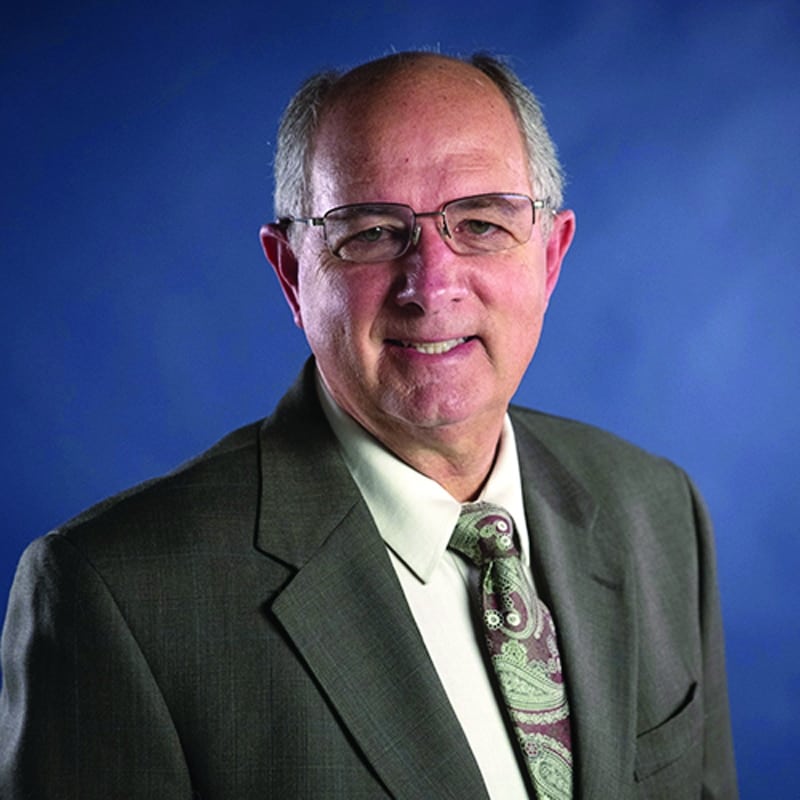By John Hebert
ALEXANDRIA (LBM) – The Scripture has a lot to say about growth of the Kingdom, but perhaps the key passage is Matthew 13 which describes the four soils and the resulting harvest from each.
The same chapter also shares a parable that compares the Kingdom of Heaven to a mustard seed, “which indeed is the least of all the seeds; but when it is grown it is greater than the herbs and becomes a tree, so that the birds of the air come and nest in its branches.”
Both of these references strongly convey the idea that the Kingdom of God should grow, and should convict you that your church should grow. Leaders must be committed to developing key skills and gaining valuable experiences that help them grow their congregations.
LESSON LEARNED
A key principle about church growth is that it is a function of health.
A healthy church will grow almost with little eff ort, and an unhealthy congregation will not grow no matter what you do.
These concepts are real to me because of something that happened during my first year of marriage.
In fact it was less than a year after Kitty and I had recited our nuptials, and we were living in Lecompte, when I decided I would plant my first garden.
I went down to the Lecompte Hardware and told Mr. Robison I needed a tiller. He had just what I needed and after a few minutes I had my first piece of farm equipment and the seeds I would plant.
Farming was in my blood – my grandfather farmed, so did my uncles, and my dad, too – and I just knew that with all that heritage I could not fail, even if I had not farmed before. But, boy, was I wrong.
Everything was fine, until the bugs showed up.
Then the mustard greens and the beans failed, and I had watermelons vines, but not melons.
Worst of all though was the corn. It was so scraggly and pitiful — stalks the size of a number 2 pencil – and to make matters worse, the corn was planted next to the road for all my farmer friends and family to see.
I’ll never forget when my uncle ribbed me in town, “Hey, Johnny how’s your corn doing?” I went home and pulled up every stalk, but never lived down the spectacle.
I learned a valuable lesson: There’s more to growing a garden than just putting seeds in the ground.
There were things I needed to know and do to create healthy plants.
HEALTH & GROWTH
I once led a church through a period of strong growth before being told by one of the church leaders, “We don’t need a ‘big’ church. We like our church to just stay small and provide a place for us to worship on Sundays.”
Importantly, he did not realize that his attitude was a rejection of God’s command to grow the church.
Paul wrote in Ephesians (4:11-12) “And He gave some as apostles, and some as prophets, and some as evangelists, and some as pastors and teachers, for the equipping of the saints for the work of service, to the building up of the body of Christ.”
Similarly, Luke wrote that growth was a natural result of the presence and power of the Holy Spirit within a congregation.
Acts 2:47 tells us that in the early church the people were, “Praising God and having favor with all the people. And the Lord added to their number day by day those who were being saved.”
Clearly, the primary goal of leaders is to “build up” the body of Christ in terms of maturity in knowledge and understanding and behavior; and, just as clearly, a measure of success in the discipleship of others is growth in numbers – disciples produce other disciples.
DOING MORE TOGETHER
Fortunately, Louisiana Baptists are blessed to have resources and expertise in helping with the health and growth of your church.
Church planters can expect formal training in church growth principles as part of the Greenhouse Training provided by the LBC missions and Ministries Team. It includes the principles, processes and structures needed for the “training up” of members to be a healthy and growing congregation from the start as a new work.
Meanwhile the LBC Evangelism and Church Growth Team offer training seminars, consultations, resources and complete systems that include these same elements for ongoing growth and health for established congregations.
Regardless of where a church is in its life cycle, keep health and growth a priority at all times!
— Nurture and make disciples.
— Evaluate what you do and how you do it, in terms of what kind of spiritual difference is evident in your people.
— Seek constantly to improve the width (the number of people you are ministering to) and the depth (increasing the training and the ministry assignments) to keep growing your people.
REAPING THE RESULTS
Like planting a garden, growth comes in its own time. You can’t make it happen overnight, but you can create an environment in which growth will result in due season.
Like most leadership skills, becoming proficient in nurturing the health and growth of followers is a matter of focus on Scripture and the power of the Holy Spirit and grasping the key practices that emerge from studying and surrendering to both.
Lastly, don’t forget to be on guard against harmful attitudes and habits that might threaten the health and growth of your congregation like harmful bug-like infestations among crops in the field.
You don’t want to hang your head when someone asks, “How’re your crops doing?
John Hebert is missions and ministry team leader for Louisiana Baptists.




